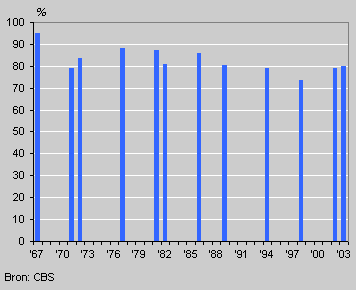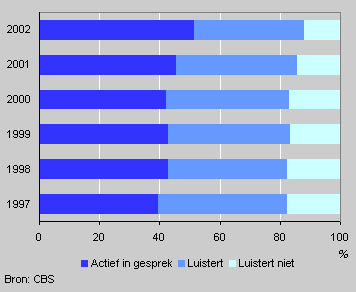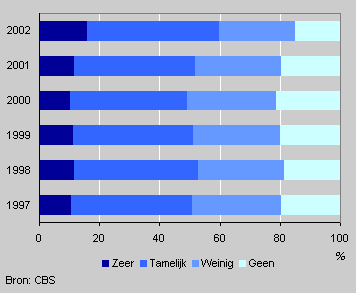More political awareness in 2002

The turnout of voters in Dutch general elections showed a downward trend after 1977, but has risen again for the two most recent elections
Turnout in general elections, 1967-2003

Compulsory voting abolished
Compulsory voting was abolished in the Netherlands in 1970. From 1977 turnout in general elections started to decrease. For local elections at municipal and provincial levels, and for European elections, too, fewer voters went to the polls.
Turnout reached an all-time low in May 1998 when only 73 percent of voters actually cast their votes. The general election in May 2002 broke the trend, with a turnout of 79 percent and the 80 percent turnout in January 2003 confirmed that the corner had been turned.
Talking politics
An increased interest in politics is also reflected in the fact that more people take part in discussions on political topics. Until 2001, 42 percent of the population said they took an active part in discussions on political topics. In 2001 this percentage had grown to 46, and in 2002 it was 52.
Participation in discussions on politics, 1997-2002

Interest in politics
While political awareness remained unchanged up to 2002, it has grown considerably since then. Sixteen percent of the population aged 15 years and older say they are very interested in politics, compared with 11 percent in preceding years. The group of fairly interested people increased by 4 percent points to 44 percent.
Political awareness, 1997-2002

Women and young people
Both voting behaviour and interest in politics changed in 2002. It is women and young people in particular who are becoming more politically aware, thus diminishing the traditional differences in political interest between men and women and between older and younger generations.
Miriam van Baal and Hans Schmeets
Source: StatLine